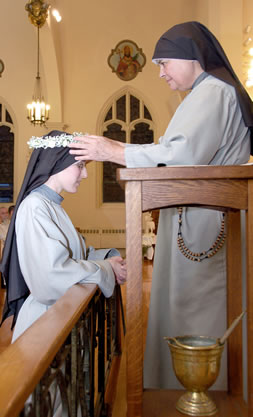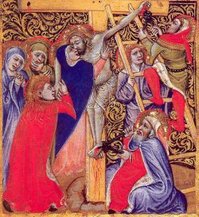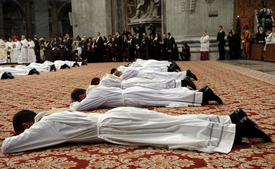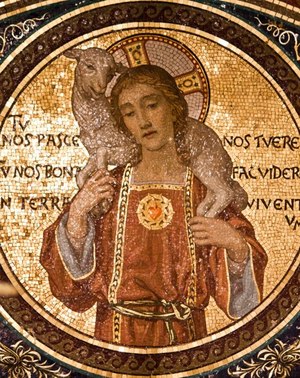In his 2010 message for World Day of Vocations, celebrated
today on Good Shepherd Sunday, Pope Benedict names three elements for someone
willing to follow a call to priesthood and/or religious life: friendship with
Jesus, total self-gift to God and a life of communion with all people. All of this situated in the sacrifice of Christ on the Cross and our relationship to that very cross. Read the
three essential paragraphs from the Pope’s message below.

A fundamental
element, one which can be seen in every vocation to the priesthood and the
consecrated life, is friendship with Christ. Jesus lived in constant union with
the Father and this is what made the disciples eager to have the same
experience; from him they learned to live in communion and unceasing dialogue
with God. If the priest is a “man of God”, one who belongs to God and helps others
to know and love him, he cannot fail to cultivate a deep intimacy with God,
abiding in his love and making space to hear his Word. Prayer is the first form
of witness which awakens vocations. Like the Apostle Andrew, who tells his
brother that he has come to know the Master, so too anyone who wants to be a
disciple and witness of Christ must have “seen” him personally, come to know
him, and learned to love him and to abide with him.
Another aspect of the
consecration belonging to the priesthood and the religious life is the complete
gift of oneself to God. The Apostle John writes: “By this we know love, that he
laid down his life for us; and therefore we ought to lay down our lives for the
brethren” (1 Jn 3:16). With these words, he invites the disciples to enter into
the very mind of Jesus who in his entire life did the will of the Father, even
to the ultimate gift of himself on the Cross. Here, the mercy of God is shown
in all its

fullness; a merciful love that has overcome the darkness of evil,
sin and death. The figure of Jesus who at the Last Supper, rises from the
table, lays aside his garments, takes a towel, girds himself with it and stoops
to wash the feet of the Apostles, expresses the sense of service and gift
manifested in his entire existence, in obedience to the will of the Father (cf.
Jn 13:3-15). In following Jesus, everyone called to a life of special
consecration must do his utmost to testify that he has given himself completely
to God. This is the source of his ability to give himself in turn to those whom
Providence entrusts to him in his pastoral ministry with complete, constant and
faithful devotion, and with the joy of becoming a companion on the journey to
so many brothers and sisters, enabling them too to become open to meeting Christ,
so that his Word may become a light to their footsteps. The story of every
vocation is almost always intertwined with the testimony of a priest who
joyfully lives the gift of himself to his brothers and sisters for the sake of
the Kingdom of God. This is because the presence and words of a priest have the
ability to raise questions and to lead even to definitive decisions (cf. John
Paul II, Post-Synodal Apostolic Exhortation Pastores Dabo
Vobis, 39).

A third aspect which necessarily characterizes the
priest and the consecrated person is a life of communion. Jesus showed that the
mark of those who wish to be his disciples is profound communion in love: “By
this all men will know that you are my disciples, if you have love for one
another” (Jn 13:35). In a particular way the priest must be a man of communion,
open to all, capable of gathering into one the pilgrim flock which the goodness
of the Lord has entrusted to him, helping to overcome divisions, to heal rifts,
to settle conflicts and misunderstandings, and to forgive offences. In July 2005,
speaking to the clergy of Aosta, I noted that if young people see
priests who appear distant and sad, they will hardly feel encouraged to follow
their example. They will remain hesitant if they are led to think that this is
the life of a priest. Instead, they need to see the example of a communion of
life which can reveal to them the beauty of being a priest. Only then will a
young man say, “Yes, this could be my future; I can live like this” (Insegnamenti
I, [2005], 354). The Second
Vatican Council, in speaking of the witness that awakens vocations,
emphasizes the example of charity and of fraternal cooperation which priests
must offer (cf. Decree Optatam
Totius, 2).



